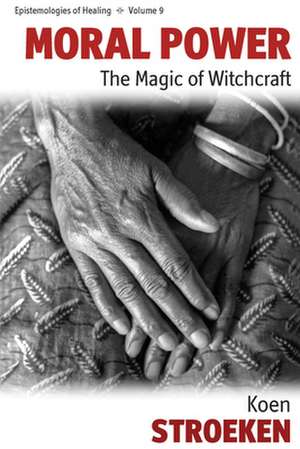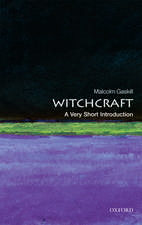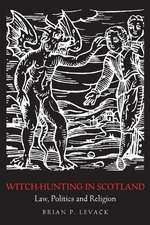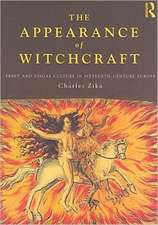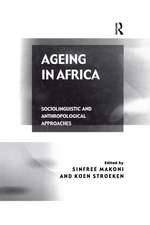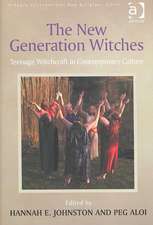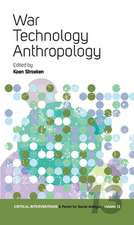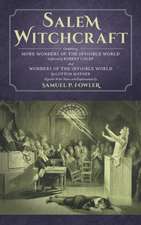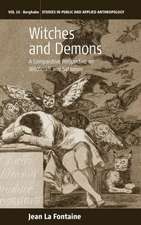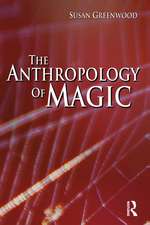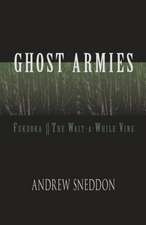Moral Power: Epistemologies of Healing, cartea 9
Autor Koen Stroekenen Limba Engleză Paperback – 31 mai 2012
The book is thoroughly engaging and a timely contribution to the literature on witchcraft. It may be found too provocative and controversial for some, but I appreciated the analysis as a useful interrogation of the 'certainties' of much anthropological theory and practice in the study of magic and witchcraft. Joanne Thobeka Wreford, University of Capetown
Neither power nor morality but both. Moral power is what Sukuma farmers in Tanzania in times of crisis attribute to an unknown figure they call their witch. A universal process is involved, as much bodily as social, which obstructs the patient's recovery. Healers turn the table on the witch throughrituals showing that the community and the ancestral spirits side with the victim. In contrast to biomedicine, their magic and divination introduce moral values that assess the state of the system and that remove the obstacles to what is taken as key: self-healing. The implied 'sensory shifts' and therapeutic effectiveness have largely eluded the literature on witchcraft. This book shows how to comprehend culture other than through the prism of identity politics. It offers a framework to comprehend the rise of witch killings and human sacrifice, just as ritual initiation disappears.
Koen Stroeken is an associate professor of Africanist anthropology at Ghent University. He studies the moral cosmologies underlying medicine and social media.
| Toate formatele și edițiile | Preț | Express |
|---|---|---|
| Paperback (1) | 261.18 lei 6-8 săpt. | |
| BERGHAHN BOOKS INC – 31 mai 2012 | 261.18 lei 6-8 săpt. | |
| Hardback (1) | 751.54 lei 6-8 săpt. | |
| BERGHAHN BOOKS INC – 11 iul 2010 | 751.54 lei 6-8 săpt. |
Din seria Epistemologies of Healing
- 14%
 Preț: 691.27 lei
Preț: 691.27 lei - 23%
 Preț: 839.30 lei
Preț: 839.30 lei -
 Preț: 347.63 lei
Preț: 347.63 lei - 23%
 Preț: 749.32 lei
Preț: 749.32 lei -
 Preț: 261.38 lei
Preț: 261.38 lei -
 Preț: 266.77 lei
Preț: 266.77 lei - 23%
 Preț: 750.66 lei
Preț: 750.66 lei - 23%
 Preț: 751.54 lei
Preț: 751.54 lei - 23%
 Preț: 751.41 lei
Preț: 751.41 lei -
 Preț: 262.14 lei
Preț: 262.14 lei - 23%
 Preț: 750.37 lei
Preț: 750.37 lei - 23%
 Preț: 751.41 lei
Preț: 751.41 lei - 23%
 Preț: 751.54 lei
Preț: 751.54 lei - 5%
 Preț: 925.79 lei
Preț: 925.79 lei - 23%
 Preț: 744.00 lei
Preț: 744.00 lei - 23%
 Preț: 747.55 lei
Preț: 747.55 lei - 23%
 Preț: 839.63 lei
Preț: 839.63 lei -
 Preț: 305.08 lei
Preț: 305.08 lei -
 Preț: 263.68 lei
Preț: 263.68 lei -
 Preț: 265.59 lei
Preț: 265.59 lei - 23%
 Preț: 751.71 lei
Preț: 751.71 lei
Preț: 261.18 lei
Nou
Puncte Express: 392
Preț estimativ în valută:
49.98€ • 52.55$ • 41.30£
49.98€ • 52.55$ • 41.30£
Carte tipărită la comandă
Livrare economică 16-30 aprilie
Preluare comenzi: 021 569.72.76
Specificații
ISBN-13: 9780857456595
ISBN-10: 0857456598
Pagini: 284
Dimensiuni: 152 x 229 x 15 mm
Greutate: 0.38 kg
Editura: BERGHAHN BOOKS INC
Seria Epistemologies of Healing
ISBN-10: 0857456598
Pagini: 284
Dimensiuni: 152 x 229 x 15 mm
Greutate: 0.38 kg
Editura: BERGHAHN BOOKS INC
Seria Epistemologies of Healing
Notă biografică
Koen Stroeken is a Lecturer in medical anthropology at Ghent University. He was initiated as a Chwezi healer in Tanzania before writing about cosmology and medicine.
Cuprins
Acknowledgements Preface Introduction: The meaning of witchcraft Chapter 1. Why magic works: Systemic healing Chapter 2. The dancer: Gift and sacrifice Chapter 3. Four forms of social exchange Chapter 4. The witch: Moral power and intrusion Chapter 5. Divination: A healing journey Chapter 6. The 'pure' reason of witch killing Chapter 7. Spirit possession: Incarnating moral power Chapter 8. Magic, ritual and the senses References Index
Recenzii
" - [Stroeken's]ethnographically-driven but conceptually-powerful book should give anthropologists some pause to re-examine their assumptions and seek unexpected connections. That is, it should cause us the good kind of trouble." * Anthropology Review "Koen Stroeken's work is fascinating, thought-provoking, theoretically challenging and ethnographically penetrating. It is anthropology, yes, and very true anthropology for that matter, but it is also a deep and unsettling experience finding its voice." * Per Brandstrom, Uppsala University "The book is thoroughly engaging and a timely contribution to the literature on witchcraft. It may be found too provocative and controversial for some, but I appreciated the analysis as a useful interrogation of the 'certainties' of much anthropological theory and practice in the study of magic and witchcraft." * Joanne Thobeka Wreford, University of Capetown
